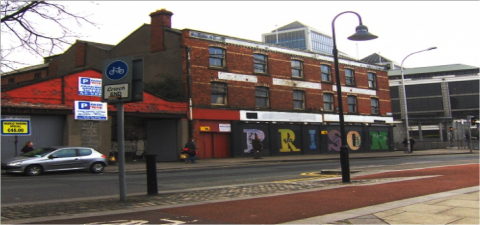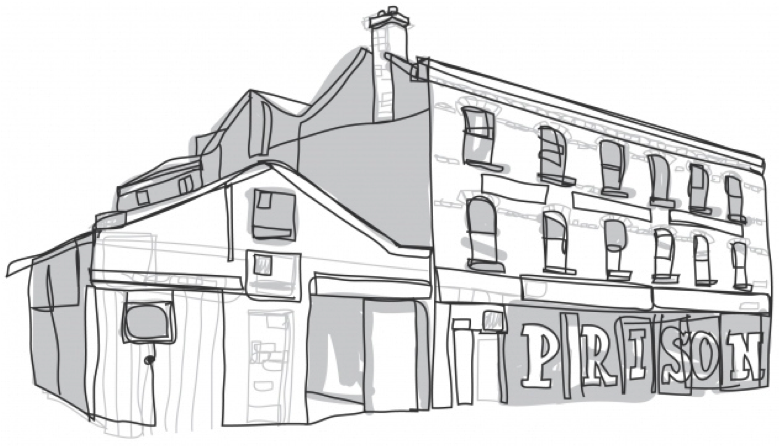Taking back the city

The Dublin City Arts Building was an art and cultural space open throughout the 1990s. The building was sold in 2002 to a conglomerate of property developers and has been empty since then. Following the property crisis the developers got into difficulty and the loans associated with the building were transferred to NAMA. A new campaign, Campaign for the Old City Arts Building (COCAB), which hopes to take back the building for educational and cultural activities, launches tomorrow, 11 June. Below, one of the organisers, Mick O'Broin, details the inspiration for COCAB, and what it hopes to achieve.
11 June will see the launch of the Campaign for the Old City Arts Building (COCAB). Our aim is to take back the Old City Arts building, 23-25 Mosse St (near Tara dart station) which has been abandoned for nearly a decade and is now part of the National Assets Management Agency (NAMA). We want the building to be opened up for use as an educational and cultural space, managed collectively by anyone who wants to take part, independent of private or state institutions. We also want to broaden this by demanding that the NAMA legislation be changed so that all disused NAMA buildings can be used by the citizens for social and cultural projects, social housing or (in the case of undeveloped land) community gardens. It is clear that the politics of ‘elected representatives’ has completely failed in the context of the crisis- only people power and direct action can bring real change.
NAMA, which is the largest property owner in Europe, has been a key part of the state’s strategy for managing the crisis, a strategy which has unashamedly prioritised the financial system and property speculators above all else.
The crisis is also being used as a pretext for destroying public services. Any public service that promotes equality has been attacked with increasing intensity over the last two years. Sectors such as the university and community development have seen their funding cut, and at the same time are being strangled by bureaucratic control. The message is clear - the state only values narrowly defined economic activity; in other words, it only values what investors value.
With unbelievable cynicism we are told that the state simply does not have the resources to fund public services - that equality is a luxury we can’t afford. Yet the state’s lack of resources is a direct result of pumping our collective wealth into the bailout of the banks, the speculators and the financial system. The irrationality of this is revealed when we consider that while the state claims to have no money for public services it has effectively bought an empire of empty buildings. That is one resource the state does have.
But NAMA has been set up on the basis of the same narrow economic objectives that define the state’s overall strategy. First of all, NAMA has bought the toxic debts (at inflated prices) rather than the buildings themselves. The vast majority of these debts will never be paid yet the speculators who own them still have a say in what happens to those buildings, while the citizens do not. In fact, NAMA is not subject to the Freedom of Information act and as such we’re not even able to access basic information about an agency which has gobbled up billions of euro of public money. Likewise, NAMA is limited to a few options in terms of the buildings it controls, each more irrational than the next and subject to the agreement of the developer in question. It can destroy a building, sell at a much reduced price or hold onto the building in the hope that we will return to the insanity of the property boom.
This is a con. We don’t want to see public resources bailing out speculators and we don’t want to see a return to property speculation. Dublin has been used as a casino for long enough - it’s time it became a city. NAMA buildings should belong to everyone.
There is no justification for maintaining empty publicly owned buildings while the state slashes public services. We want to use the old Dublin City Arts building for independent educational and cultural projects open to everyone. In particular, we believe that because the university is being undermined, we need a space where education is based on equality and open to all, where teaching, learning and research can become a force for change, and where the bureaucracy, competition and corporatisation of the university are replaced by a collective, participative and empowering educational process. The project will be run collectively and democratically by anyone who wants to participate and will provide space for any projects who want to organise educational or cultural activities. We are especially hopeful that the space will be a resource for those excluded from education and from the city in general.
The NAMA legislation was made by the Dáil - but what the Dáil does the people can undo.

